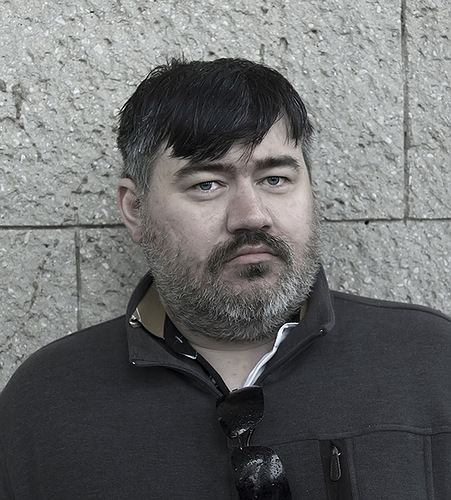The Mouthpiece of Totalitarian Propaganda — Crimea’s Colonel Cassad
by Global Voices / December 11, 2014 / No comments
This article is part of an extensive RuNet Echo study of Russian-language blogosphere in Eastern Ukraine. Explore the complete interview series on the Eastern Ukraine Unfiltered page.
Since the Yanukovych regime fell in February 2014, one of the most popular explanations for the political violence that gripped the south and east of Ukraine is nostalgia for an idealized Soviet past. Some commentators, such as Julia Ioffe, characterize this nostalgia as generational. In other words, those too young to remember the Soviet period properly are less likely to idealize it.
If this is the case, 32-year-old Sevastopol native Boris Rozhin is bucking the trend. Rozhin, who runs the popular blog Colonel Cassad, is unrepentant in his admiration for the Soviet Union, particularly its military achievements in the Second World War. Rozhin is also unapologetic about his admiration for Joseph Stalin, whom he credits with winning the war and accomplishing the Soviet Union’s rapid economic growth in the 20th century. His blog carries the half-ironic subtitle, “The Mouthpiece of Totalitarian Propaganda.” The biggest influence on his writing, Rozhin claims, are his communist beliefs, which “incline [him] towards class and dialectical conclusions when analyzing one event or another.”
Boris Rozhin runs the popular Crimean blog Colonel Cassad.
In addition to Marxist politics and military history, Rozhin’s blog also includes posts on popular culture, video games, and science fiction. These themes have faded into the background in recent months, though, as Rozhin “spends most of [his] time providing information on the war in the Donbas, helping the fighters and refugees there.”
Colonel Cassad has enjoyed a tremendous spike in popularity following the appearance of the “polite people” in Rozhin’s native Crimea. An enthusiastic supporter of both Crimea’s “reunification” with Russia and the various “people’s republics” that have sprouted in eastern Ukraine, Rozhin views the authorities in Kyiv as an illegitimate “fascist junta” or “banderite gang” and blames the unrest in Ukraine on NATO and the United States. His blog has clearly tapped into a popular mood among Russian speakers and his posts can receive thousands of “likes,” shares, and comments.
Rozhin has little time for the mainstream media.
I don’t believe in the existence of independent media. They all in one way or another depend on the state or on the money of private individuals, which defines their editorial line… The mainstream media creates either a sterilized or a fake picture, because they as a rule aren’t serving what I think is the truth in the first place. Events in Crimea showed this well, when real life was a lot more complicated that either the Ukrainians’ or the [Russian] jingoists’ propaganda. It’s important for bloggers and writers to understand that the world is changing and, with the necessary zeal or talent, you can become the real media with as much impact as the mainstream press.
Rozhin isn’t entirely optimistic about the future of blogging, however.
Until recently the blogosphere was an exception to this rule, but now it’s being gradually subsumed within the framework of the state’s regulation of cyberspace.
Rozhin expresses no discomfort about the fact that his support for the separatists in the Donbas places him in the company of Russian far-right forces and nationalists, whose views are antithetical to a hard-leftist. Rozhin draws a historical parallel with “international help” during the Spanish Civil war, when “the republicans were supported by more than just communists.” Rather, he sees the conflict as an opportunity.
The leftist movement is now in crisis, and communists must use this war to teach themselves organization, coordination, and other useful things (borrowing from the right, too, but taking their methods — not their ideas), which will be useful in the foreseeable future.
Rozhin has little love for Vladimir Putin, whom he dismisses as a “capitalist master.” Despite this, his blog has become massively popular among Putin’s supporters. It has also earned him the ire of Ukraine’s intelligence services. Rozhin says Kyiv would arrest him for “calls to overthrow the existing order of Ukraine, separatism, and ‘terrorism.’” The last charge, in Rozhin’s words, is merely “how the Kyiv junta understands helping the Donbass.”
These are strange and interesting times when a convinced Stalinist with an interest in military history and science fiction can become a darling of the RuNet and an enemy of the Ukrainian state. But while Rozhin’s politics currently align him with Russia, he is also at its mercy. Now that he is living in de facto Russian territory, authorities in Moscow can officially label “Colonel Cassad” a mass media outlet, restricting Rozhin’s ability to write freely. How this threat will affect his blogging remains to be seen.
Written by Daniel Alan Kennedy
This article was originally published by Global Voices on July 30, 2014.





